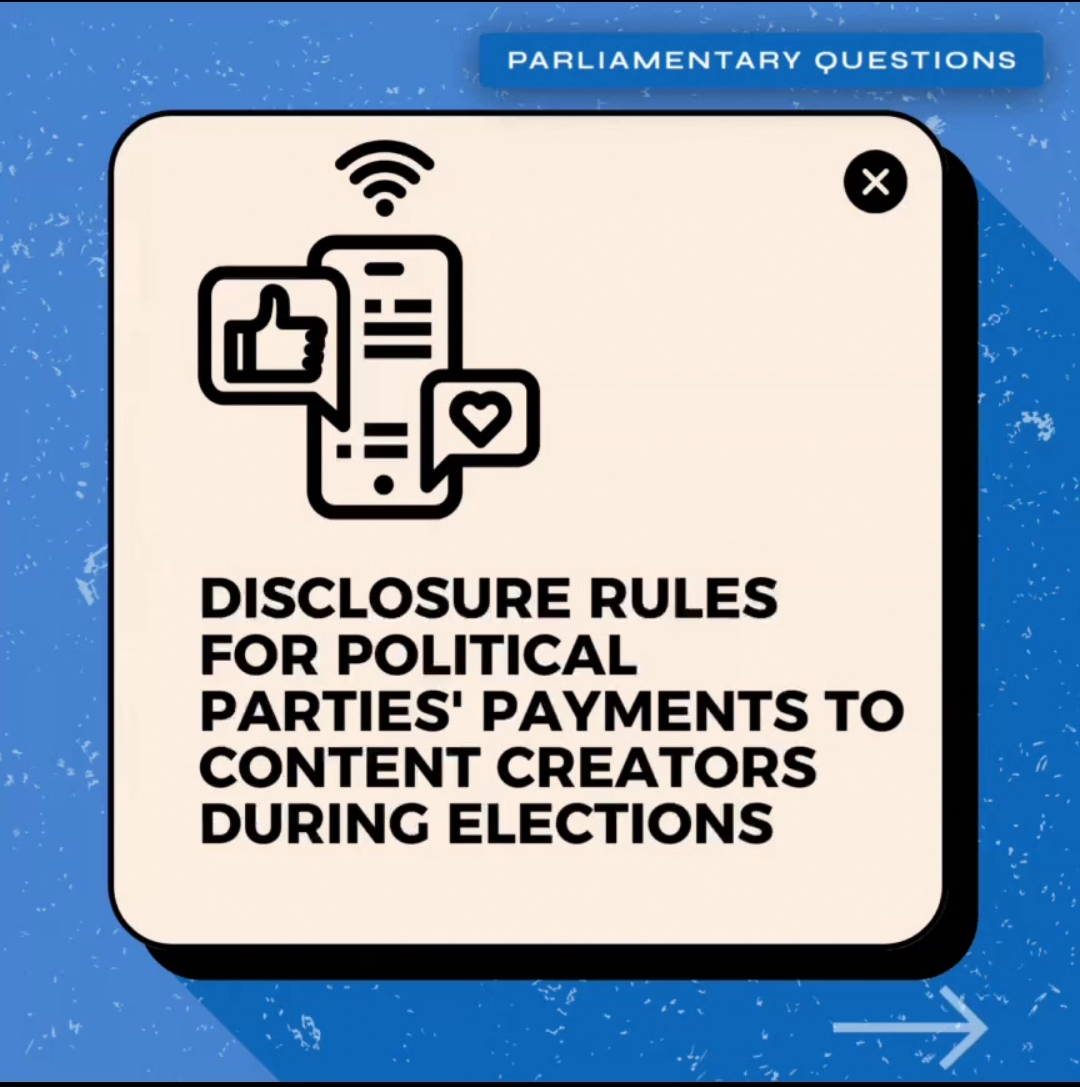In Parliament on 7 Aug 2024, I asked the Prime Minister whether political parties or candidates who pay digital content creators to post during or before election campaigns are required to disclose these payments. I also inquired whether content creators must declare their partnerships with political parties in their posts, and what the specific disclosure requirements are.
In his response on behalf of the PM, Minister Chan Chun Sing said that any paid Online Election Advertising (OEA) must be disclosed, showing the names of those who paid for and approved the content. Payments to content creators during non-election periods, if related to an upcoming election, must also be declared.
The Minister also mentioned rules under the Foreign Interference (Countermeasures) Act and other existing requirements for political parties.
Transparency is key to maintaining trust in our electoral process.
This is the full text of the question and answer:
7 August 2024
Written Reply to Parliamentary Question on Whether Political Parties or Candidates that Pay Digital Content Creators to Post Content Either Before or During Election Campaigns Will Be Required to Disclose These Payments
Mr. Gerald Giam Yean Song asked the Prime Minister and Minister of Finance (a) whether political parties or candidates that pay digital content creators, either directly or indirectly, to post content either before or during election campaigns will be required to disclose these payments; (b) whether the said content creators are also required to declare the nature of their partnership with political parties or candidates within their posts; and (c) what are the disclosure requirements.
Written Reply by Mr. Chan Chun Sing, Minister of Education, for the Prime Minister:
1. Under the legislation governing Online Election Advertising (OEA), only political parties, candidates, their election agents, or other third parties who have received written authorisation are allowed to publish OEA that is paid for. Every payment made in respect of any expenses incurred in the conduct or management of an election must be submitted as part of the declarations by the candidates and their election agents, rather than the digital content creator, and supported with bills and receipts as set out in the relevant laws. This includes all paid OEA. The OEA must disclose that it is paid for, and show the full names of the persons who paid for it. The full names of the persons who approved the content of the OEA must be shown as well.
2. Election expenses include any expenses incurred whether before, during, or after the election, in respect of the conduct or management of the election. Thus, any payments made to content creators during the non-election period ahead of any impending election would have to be declared as long as the content created is in respect of the conduct or management of the candidate’s election. Outside of elections, there are also rules governing the receipt of donations received by all political parties, political office holders, and other politically significant persons. Such donations must be disclosed under the Foreign Interference (Countermeasures) Act. There are also other accounting and disclosure requirements on political parties as well, as the Member will be aware.
